ndonesian university students visited Department of Vegetable and Mushroom Growing - Institute of Horticultural Sciences
Indonesian university students visited Our Institute
For MATE's Institute of Horticulture, close cooperation and joint professional work with growing companies is of utmost importance. As part of this, at the end of October, we trained a group of 20 Indonesian university students on mushroom cultivation, who are doing their internship at Bio-Fungi Kft.
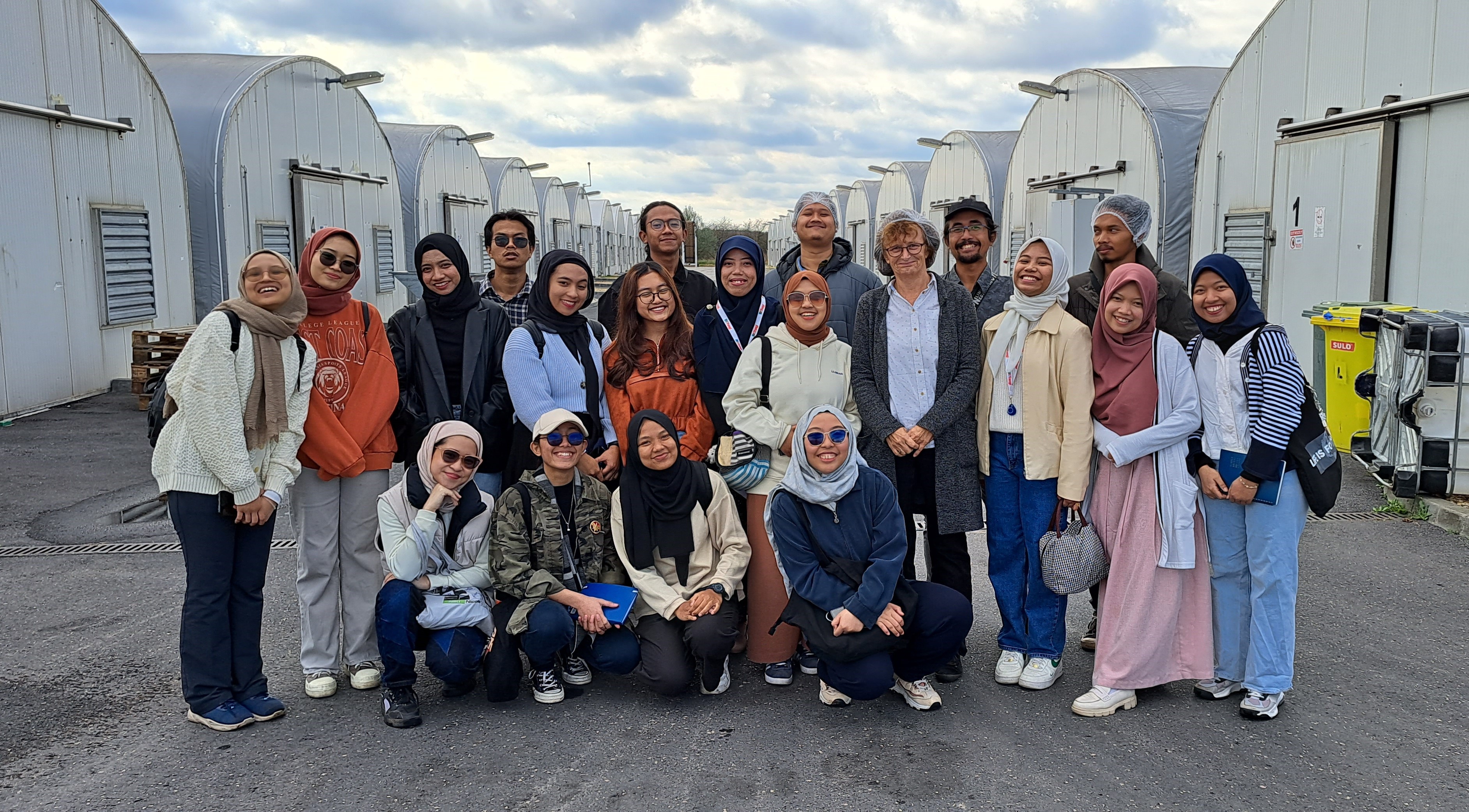
The team of 20 university students who started their one-year internship at Bio-Fungi Kft. came from the four largest agricultural higher education institutions in Indonesia. The university students participating in the bachelor's degree in horticultural engineering, agricultural engineering, food engineering and environmental engineering do their internship at one of the country's largest mushroom industry companies. The company dealing with the production and cultivation of mushroom compost produces approximately 2,400 tons of mushroom compost and 140 tons of fresh mushrooms (chisperke, laska, shiitake) per week in its plants located in Ócsán and Áporka in Pest County . To compensate for the labor shortage in our country, the company accepted university students from Indonesia for student internships, who acquired the practical knowledge of mushroom cultivation at the company's two sites, as well as the results of the joint GINOP+ application of MATE and Bio-Fungi Kft.
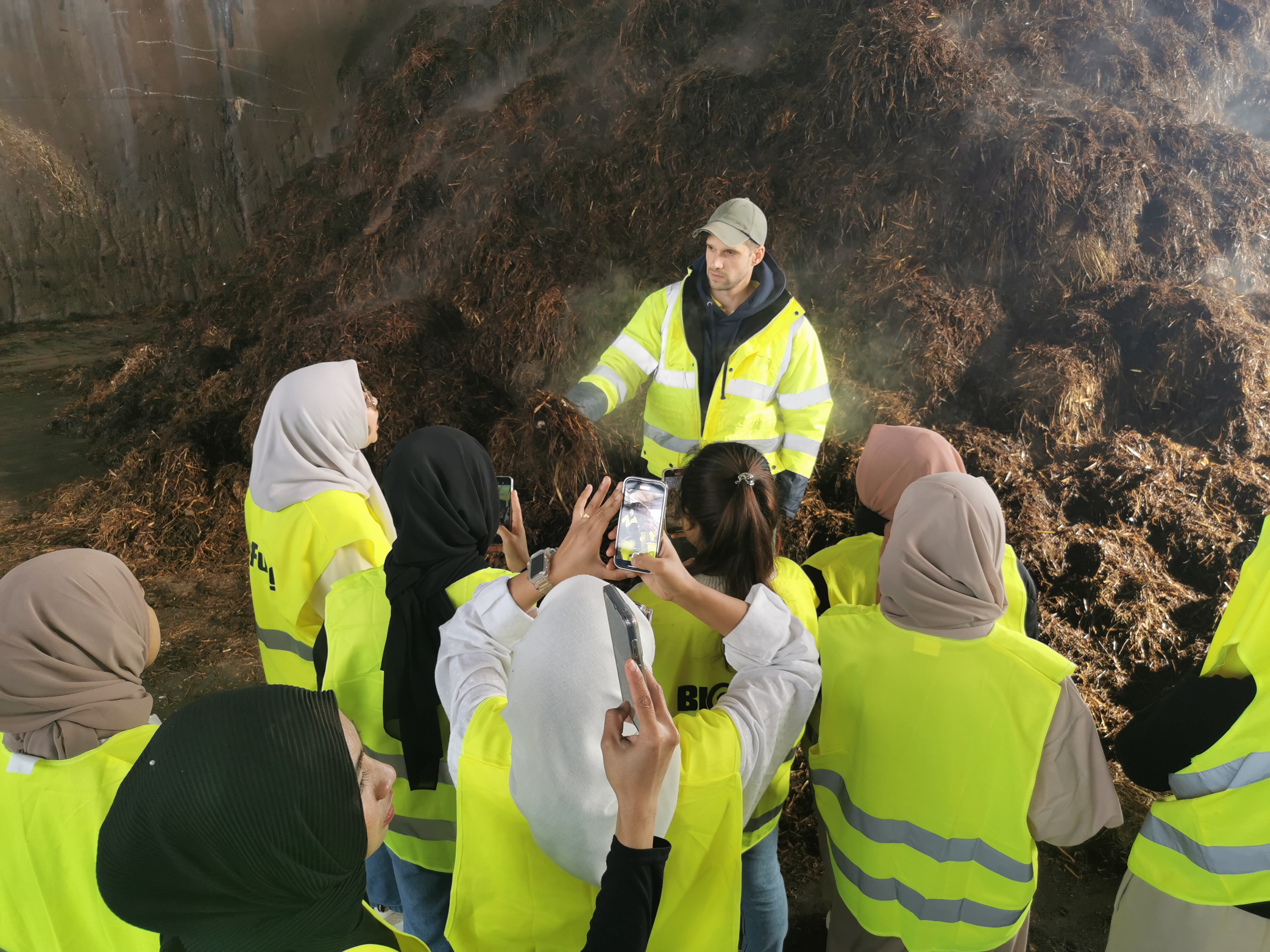
Employees of the Institute of Horticulture took part in the theoretical training of the students, who gave theoretical lectures on the biology of mushrooms, the production of propagating material, and their place in ecosystems. After acquiring the basic knowledge, the students learned about the theoretical background of compost making and mushroom cultivation. During the two-day intensive program, the students received a detailed presentation in the company's two production units, combining theoretical knowledge with practical knowledge.
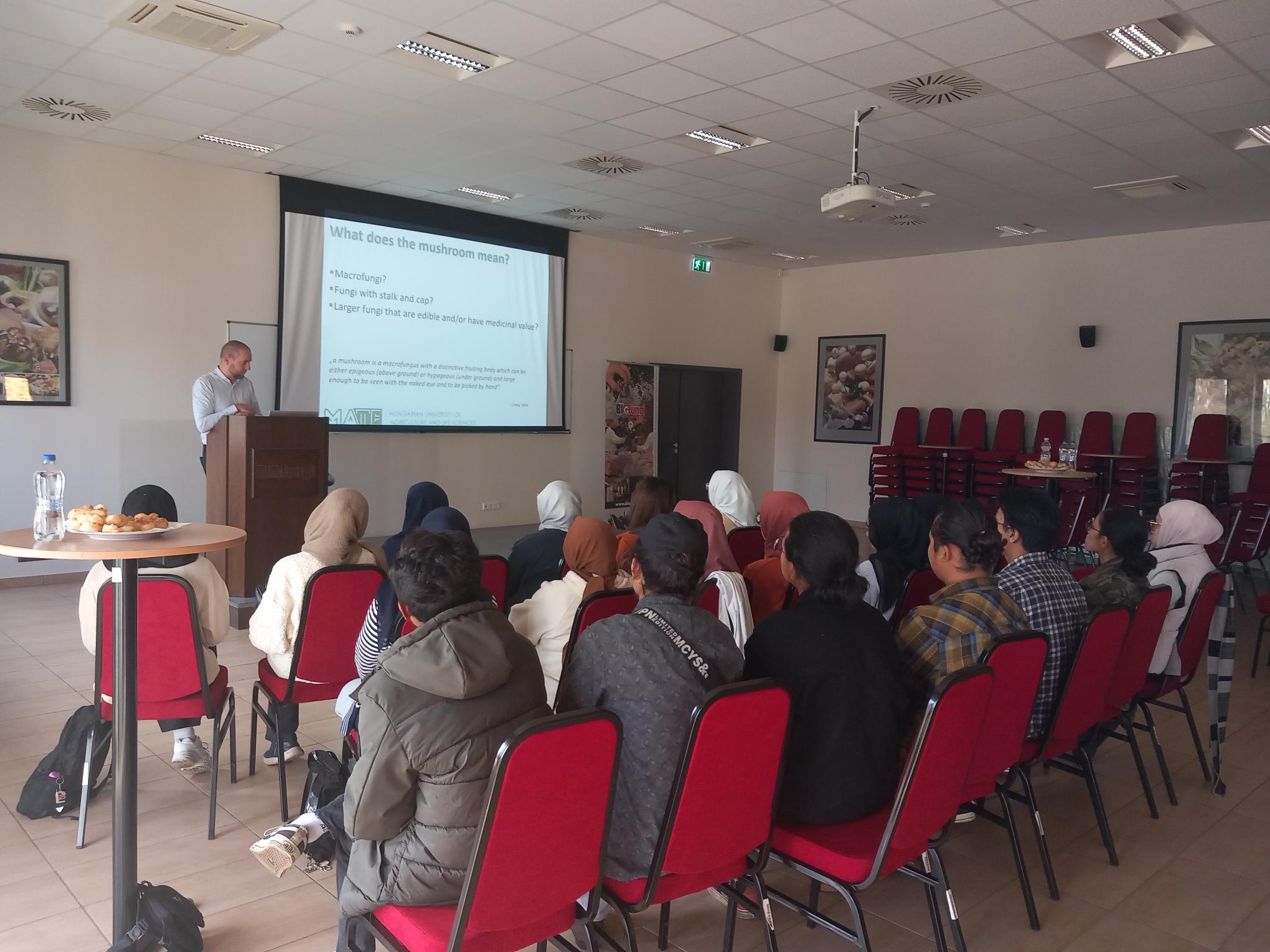
The students also visited the MATE Buda Campus , where, in addition to mushroom cultivation techniques that can be implemented in the urban environment, they also learned the implementation of extensive cultivation. In the cultivated mushroom laboratory of the Department of Vegetable and Mushroom Cultivation, they learned about gene bank preservation techniques. In addition, the students created a mushroom mock tissue culture in a sterile booth and learned skills in using a microscope.
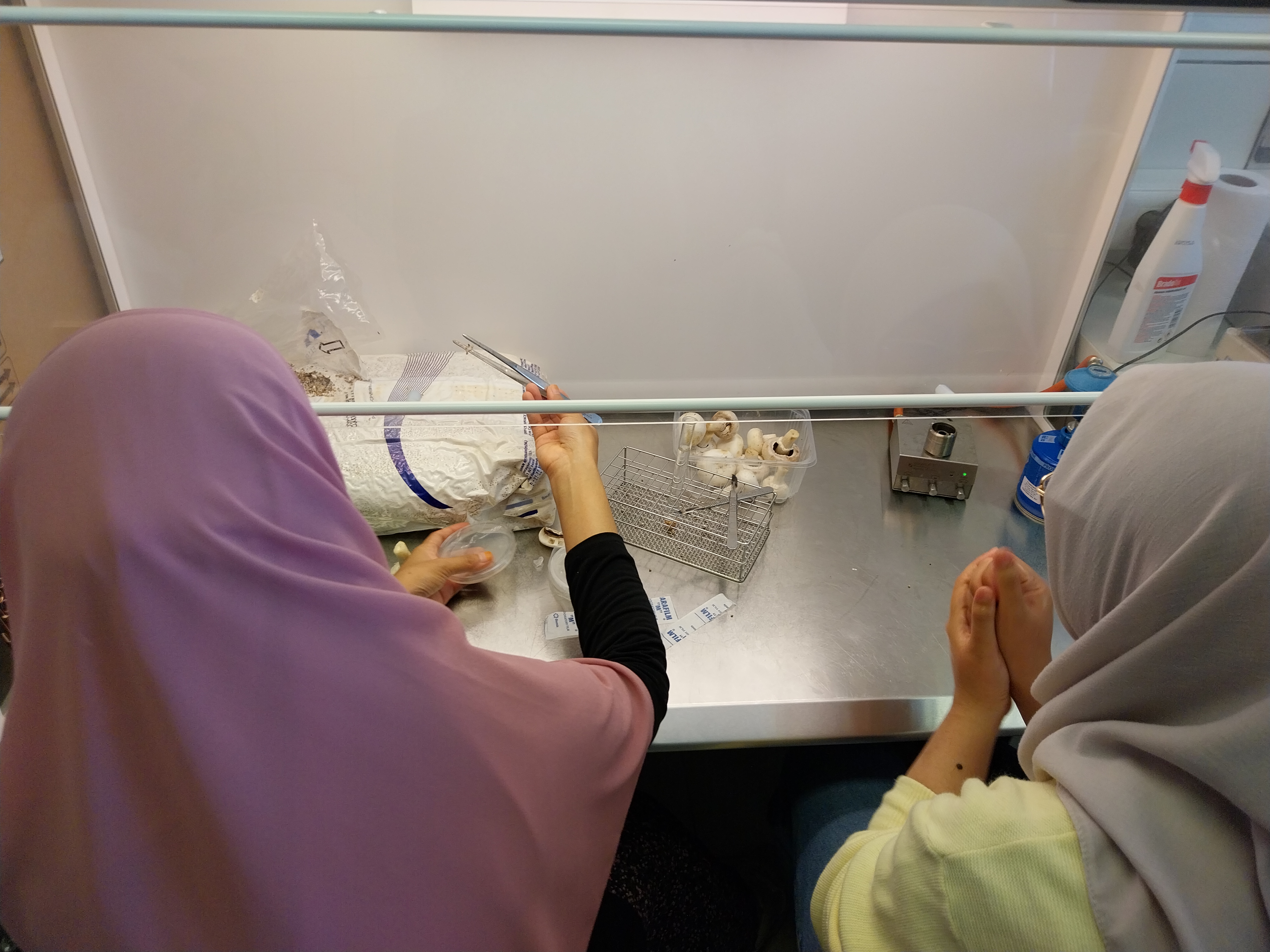
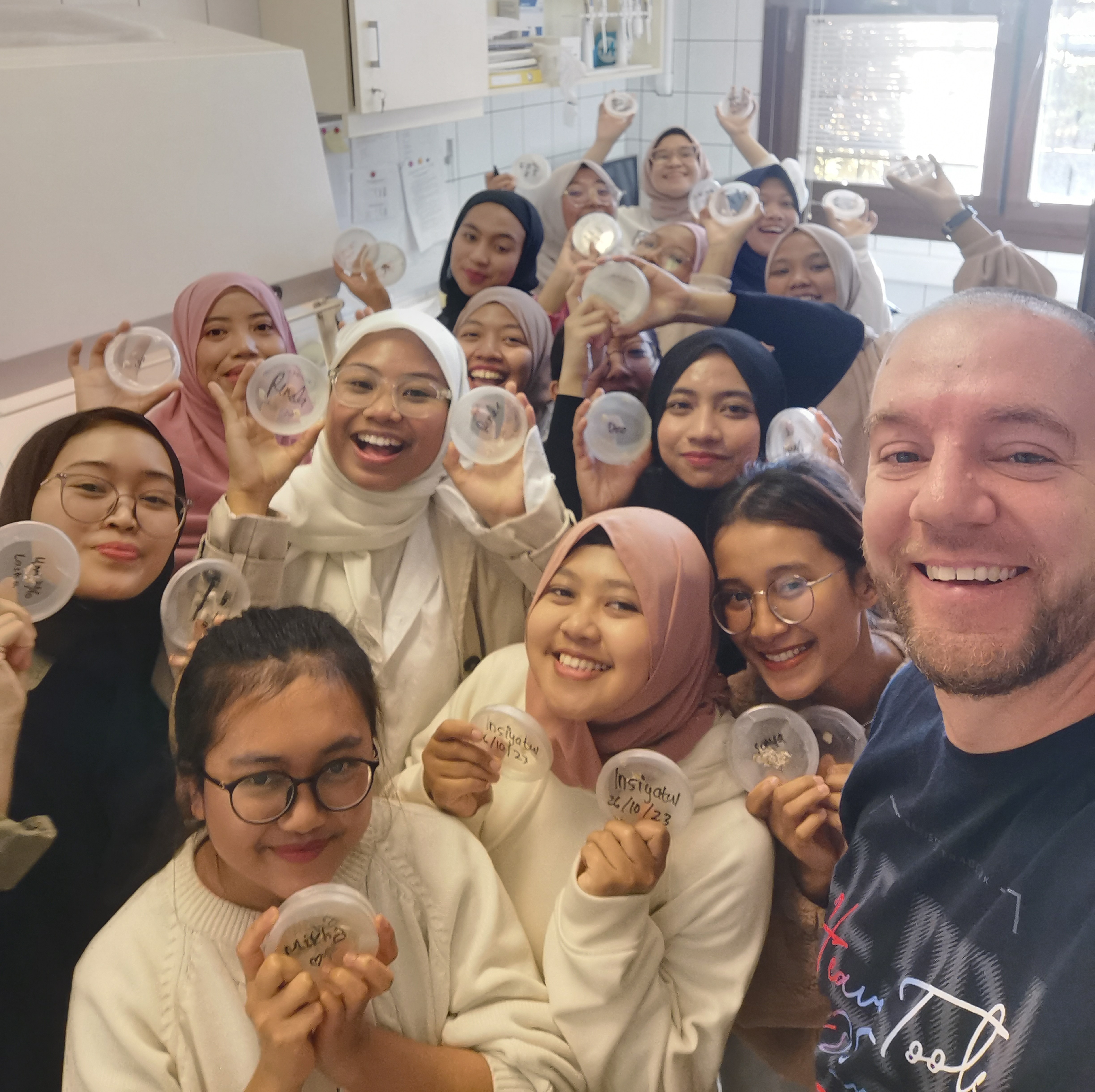
Most of the university students were already familiar with MATE and its courses offered in the Stipendium Hungaricum, so after the transfer of theoretical knowledge and laboratory demonstrations, several indicated their intention to apply to our institution, where they would later continue their studies.

The team of 20 university students who started their one-year internship at Bio-Fungi Kft. came from the four largest agricultural higher education institutions in Indonesia. The university students participating in the bachelor's degree in horticultural engineering, agricultural engineering, food engineering and environmental engineering do their internship at one of the country's largest mushroom industry companies. The company dealing with the production and cultivation of mushroom compost produces approximately 2,400 tons of mushroom compost and 140 tons of fresh mushrooms (chisperke, laska, shiitake) per week in its plants located in Ócsán and Áporka in Pest County . To compensate for the labor shortage in our country, the company accepted university students from Indonesia for student internships, who acquired the practical knowledge of mushroom cultivation at the company's two sites, as well as the results of the joint GINOP+ application of MATE and Bio-Fungi Kft.

Employees of the Institute of Horticulture took part in the theoretical training of the students, who gave theoretical lectures on the biology of mushrooms, the production of propagating material, and their place in ecosystems. After acquiring the basic knowledge, the students learned about the theoretical background of compost making and mushroom cultivation. During the two-day intensive program, the students received a detailed presentation in the company's two production units, combining theoretical knowledge with practical knowledge.

The students also visited the MATE Buda Campus , where, in addition to mushroom cultivation techniques that can be implemented in the urban environment, they also learned the implementation of extensive cultivation. In the cultivated mushroom laboratory of the Department of Vegetable and Mushroom Cultivation, they learned about gene bank preservation techniques. In addition, the students created a mushroom mock tissue culture in a sterile booth and learned skills in using a microscope.


Most of the university students were already familiar with MATE and its courses offered in the Stipendium Hungaricum, so after the transfer of theoretical knowledge and laboratory demonstrations, several indicated their intention to apply to our institution, where they would later continue their studies.

